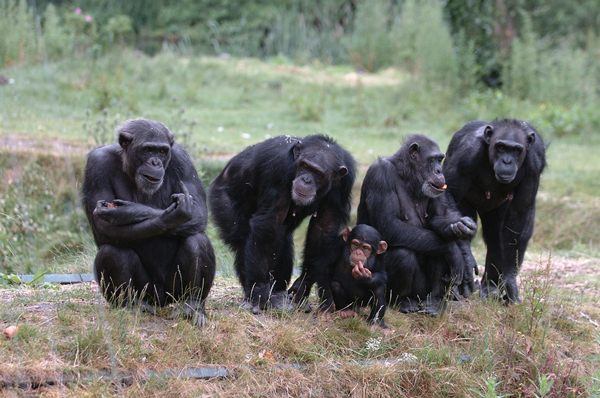Do Non-human
primates have culture?
This
is the question that S. L. Washburn, Burton Benedict, and Robert M. Sapolsky
seek to answer. In today’s blog posts I will be detailing the extent of both
arguments, ending with a short synopsis of my view on culture in primates.
1) Six conditions designate culture:
As stated by Washburn and Benedict, the six conditions that designate culture are as follows: Innovation, dissemination, standardization, durability, diffusion, and tradition. Early definitions of culture were equal to the sum total of what an individual acquires from his society. Observable differences in behavior between populations are based off learning and history. Washburn and Benedict argue that learning is very important for nonhuman primates! From our textbook we know that the social organizations of various primates are very different, but the major differences are biologically determined and modified by learning and local conditions.
As stated by Washburn and Benedict, the six conditions that designate culture are as follows: Innovation, dissemination, standardization, durability, diffusion, and tradition. Early definitions of culture were equal to the sum total of what an individual acquires from his society. Observable differences in behavior between populations are based off learning and history. Washburn and Benedict argue that learning is very important for nonhuman primates! From our textbook we know that the social organizations of various primates are very different, but the major differences are biologically determined and modified by learning and local conditions.
The article states that human social behavior depend on
language[and speech], and we learn such language with great ease. One of the
major differences that sets nonhuman primates apart from us is the lack of
speech in primates. While large parts of our brain work together to
demonstrates speech, the same cannot be said for primates. The article argues
that since nonhuman primates lack speech, they thus lack tradition, which is arguably
the most important of the six points abstracted in culture. Though I disagree
with this notion, as various social traditions exhibited in non-human primates…
this is touched on more in the second part of my blog posts. Still, tradition
ties in with our ability to speak and relay thoughts, various human traditions
are made possible solely through speech. Speech brings a wealth of tradition, and
this cannot be denied.
Language is a given for our culture, and through language we
humans are able to meet the six conditions designating culture. The article
states that "The difference is basic and the difference is rooted in
biology" (Washburn and Benedict, 1979, p. 164). Washburn and Benedict
argues that language and speech are necessities in developing culture.
The article vehemently
denies that primates could possess culture as reaching the six conditions would
only be possible with the use of language.

No comments:
Post a Comment